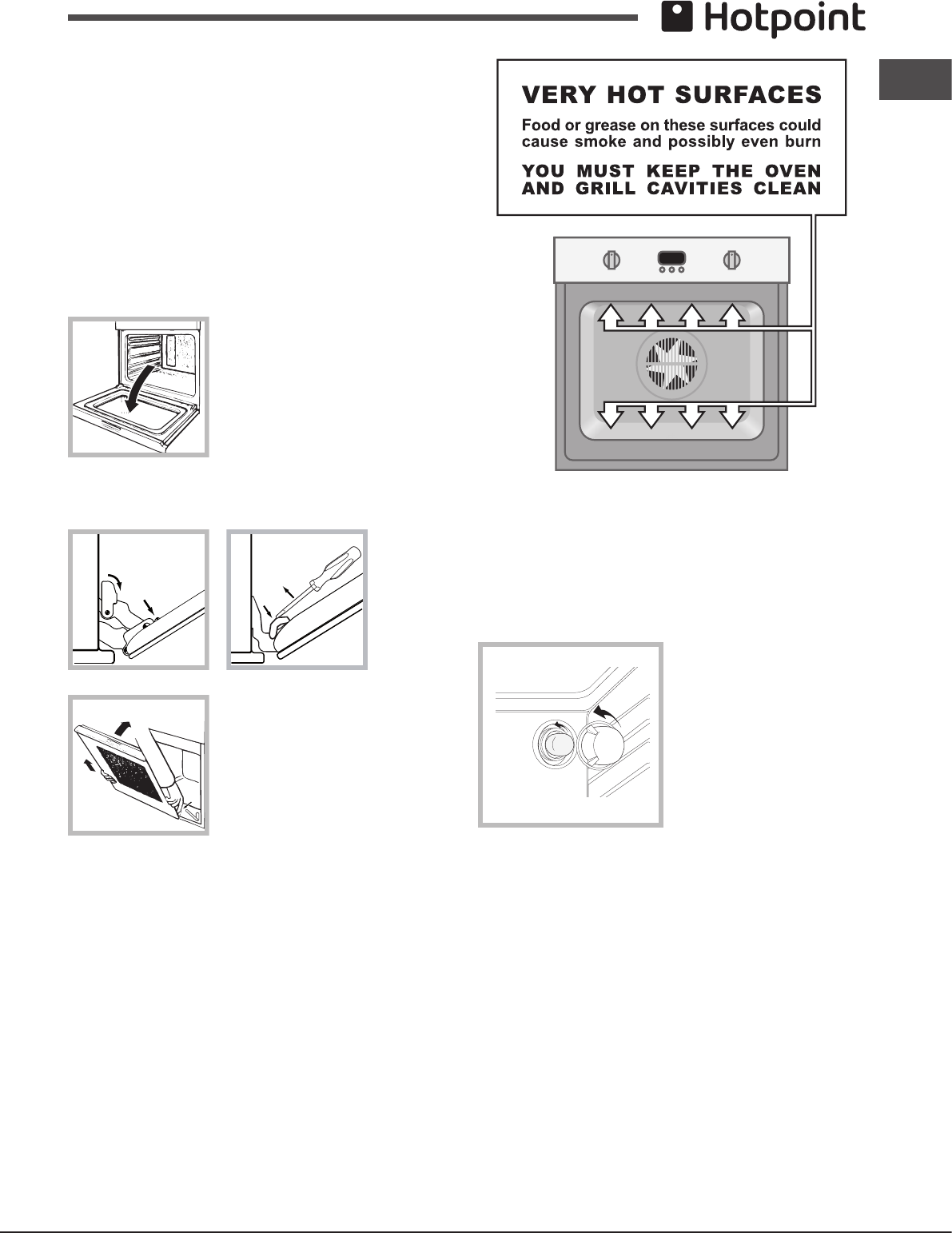
GB
11
PLEASE PHONE US TO REGISTER YOUR APPLIANCE AND ACTIVATE YOUR PARTS GUARANTEE ON 08448 24 24 24
• All accessories can be washed like everyday crockery,
and are even dishwasher safe.
• We recommend that detergents are not sprayed directly
onto the control panel, but that a sponge is used instead.
! Never use steam cleaners or pressure cleaners on the
appliance.
Cleaning the oven door
Clean the glass part of the oven door using a sponge and
a non-abrasive cleaning product, then dry thoroughly with
a soft cloth. Do not use rough abrasive material or sharp
metal scrapers as these could scratch the surface and cause
the glass to crack.
For more thorough cleaning
purposes, the oven door may be
removed:
1. Open the oven door fully (see
diagram).
2. Use a screwdriver to lift up and turn the small levers F
located on the two hinges (see diagram).
F
F
3. Grip the door on the two external
sides and close it approximately
half way. Unlock the door by
pressing on the clamps F, then
pull the door towards you lifting it
out of its seat (see diagram).
To replace the door, reverse this
sequence.
F
Inspecting the seals
Check the door seals around the oven regularly. If the seals
are damaged, please contact your nearest Service Centre
(see Assistance). We recommend that the oven is not used
until the seals have been replaced.
Replacing the light bulb
To replace the oven light
bulb:
1. Remove the glass cover
of the lamp-holder.
2. Remove the light bulb
and replace it with a similar
one: Wattage 25 W, cap E
14.
3. Replace the glass cover
(see diagram).
! Do not use the oven lamp as/for ambient lighting.
Side and rear catalytic liners*
These are panels coated with a special enamel, which is
able to absorb the fat released by food as it cooks.
This enamel is quite strong, so that the various accessories
(racks, dripping pans, etc.) can slide along them without
damaging them. White marks may appear on the surfaces;
these are not a cause for concern.
Nevertheless, the following should be avoided:
- scraping the enamel with sharp objects (a knife, for
example);
- using detergents or abrasive materials.
* Only available on certain models.


















